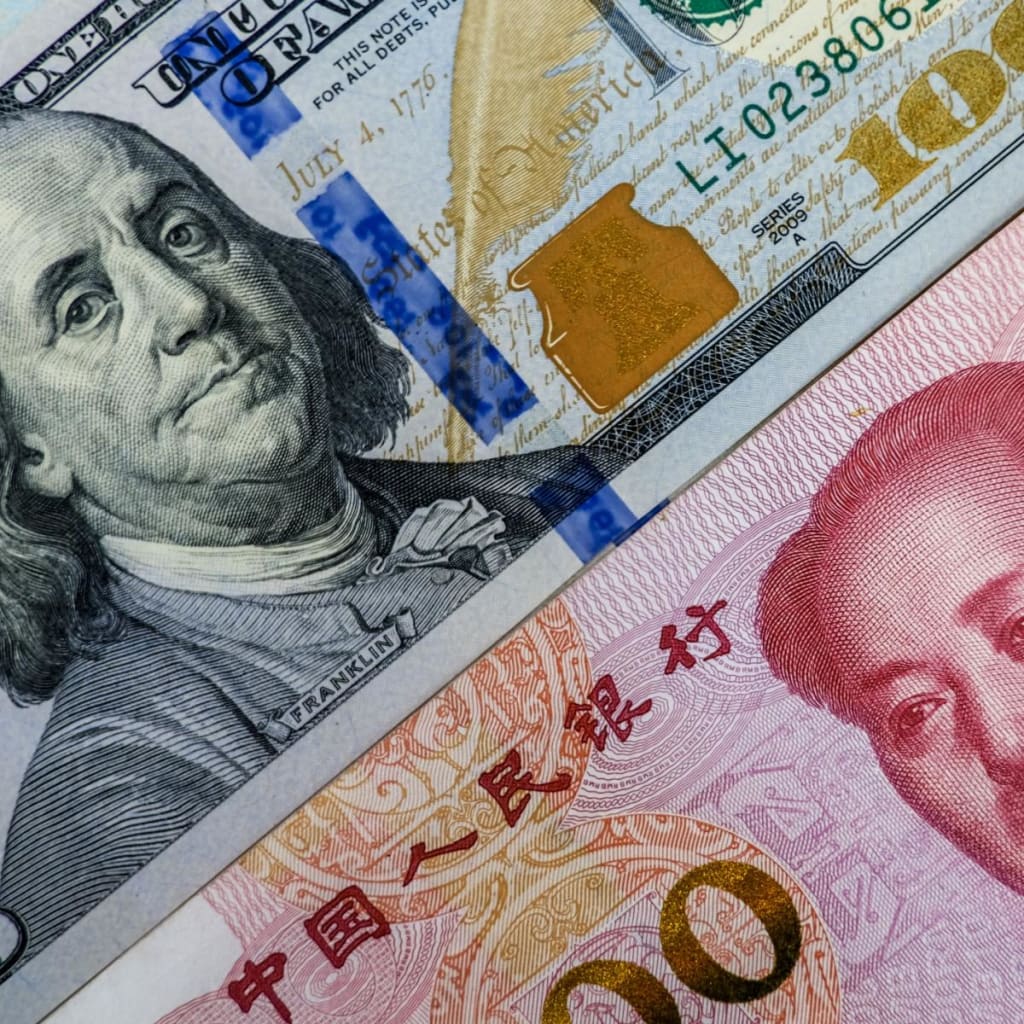"The End of US Dollar Dominance: Why Saudi Arabia and Egypt are Changing Currencies and the Impact of the BRICS Bank"
"Exploring the Shift Toward the Chinese Yuan and the Future of Global Economic Order"

In recent years, there has been a shift away from the US dollar as the world's dominant currency, with countries like Saudi Arabia and Egypt opting to use the Chinese yuan instead. This shift is indicative of a larger trend that could have significant implications for the US dollar and the global economy as a whole.
The US dollar has long been the world's reserve currency, used in international trade, finance, and investment. However, the dollar's dominance has been challenged in recent years by the rise of China and other emerging economies. In response, countries like Saudi Arabia and Egypt have started to shift away from the dollar and towards the yuan.
There are several reasons why countries are making this shift. For one, the yuan is becoming increasingly important in global trade. China is now the world's largest trading nation, and the yuan is being used more and more in international transactions. This means that countries that do business with China are finding it more convenient to use the yuan instead of the dollar.
Another reason why countries are shifting away from the dollar is the perception that the US is becoming increasingly isolationist and protectionist. The Trump administration's trade policies and rhetoric have alienated many countries, and this has led some to look for alternative currencies to use in trade and investment.
The shift towards the yuan is also being driven by China's growing economic clout. China is now the world's second-largest economy and is projected to overtake the US in the coming decades. As China's economy grows, so too does the importance of the yuan.
One development that could accelerate the shift away from the dollar is the establishment of the BRICS Development Bank. This bank, which was created by Brazil, Russia, India, China, and South Africa, is designed to provide financing for infrastructure and development projects in these countries. The bank is seen as a challenge to the dominance of the World Bank and the International Monetary Fund, which are both based in Washington, DC and are seen as being dominated by the US.
The establishment of the BRICS bank is significant because it represents a shift in economic power away from the US and towards emerging economies. If the bank is successful, it could lead to more countries using the yuan instead of the dollar in international transactions.
So what does all of this mean for the US dollar? In the short term, it is unlikely that the dollar will lose its status as the world's reserve currency. The dollar is still the most widely used currency in international transactions, and the US economy is still the largest in the world. However, the shift towards the yuan and the establishment of the BRICS bank are both signs that the global economic order is changing.
In the long term, the dollar's dominance could be challenged by the yuan and other currencies. If more countries start using the yuan in international trade, this could lead to a reduction in demand for the dollar. This could have significant implications for the US economy, as the dollar's status as the reserve currency has allowed the US to borrow money at lower interest rates than other countries.
In conclusion, the shift away from the dollar towards the yuan and the establishment of the BRICS bank are both signs that the global economic order is changing. While the dollar is unlikely to lose its status as the world's reserve currency in the short term, the long-term implications of these trends are unclear. It remains to be seen how the global economic order will evolve in the coming years, but one thing is clear: the era of US dollar dominance is coming to an end.
About the Creator
Mohamed Shiba
Hey, My name is Mohamed a talented writer known for their captivating storytelling and novels.I am passionate about literacy, education, entertainment and politics. I hope you enjoy my writings!





Comments
There are no comments for this story
Be the first to respond and start the conversation.